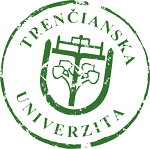New projects for FunGlass
It is a pleasure for us to announce, that FunGlass researchers have been successful in VEGA grant scheme for period 2020-2023. One project was prepared under the leadership of FunGlass Centre (Dr. D. Galuskova and Dr. J. Kraxner) and one under Slovak Academy of Sciences (assoc. prof. M. Chromčíkova) and FunGlass as a partner (Dr. M. Hujova).
Europen Projects Office (P. Hostak, P. Otrubcak, A. Chrastinova) was involved in a preparation of the project proposal supporting the organization of the 14th International Scientific Conference on Solid State Chemistry (SSC) with supplementary events entitled “From Brain Drain To Brain Gain at SSC 2020”. This project was submitted within the Visegrad Funds and it has been approved for financing.
Projects abstracts:
Bioresponse and degradation properties of novel bioactive materials with additional functionalities (VEGA 1/0191/20)
Project Leader: Dr. Dagmar Galuskova / (Period: 1.1.2020 -1.12.2023)
The ethical and financial issuesd are still fraught for the use of animals in pre-clinical in vivo testing. Appropriately designed in vitro methodology can provide relevant information on bioactivity and degradability and thus facilitate and economise selection of bio devices for in vivo testing. Poor correlation of in vitro biomaterial assessments confirms a need for deep reevalution of existing testing prcedures. The aim of the project is to identify and verify the test settings, which are predictive in respect to bioresponse even at the early stage of immersion to become time and cost-efficient alternative to in vivo testing. Optimal condition of in vitro setings will be designed and after verification applied to the novel bioactive scaffolds to assess dissolution kinetics and mechanisms of bioresponse in simulated human environment. Degradation performance assessment of selected biomaterials will provide information on the role of therapeutic ions bone and tissue regeneration.
Development and characterisation of spherical microparticles for preparation of advanced 3D glass and glass-ceramic structures (VEGA-1-0456-20)
Project Leader: Dr. Jozef Kraxner / (Period: 1.1.2020 -1.12.2023)
This project addresses the development of new materials in the form of vitreous microspheres, prepared via flame synthesis, and their utilization in 3D glass and glass-ceramic structures. The project focuses on the optimization of the flame synthesis parameters (i.e. the length vs temperature of flame ratio, the red-ox conditions of ignition, or the precursor feeding rate). These conditions influence the chemistry, structure, and morphology of synthesized microspheres. Full, hollow and porous microspheres will be prepared in aluminate, silicate, borate and boro-silicate systems, which, in many cases such compositions are difficult to achieve via conventional glass-making methods. Hollow and porous microspheres will be prepared via alkali activation or the addition of porogens. Microspheres will be used for the preparation of advanced 3D structures via the Additive Manufacturing Technology (3D print), which utilizes Direct Light Processing, Direct Ink Writing and Hot Isostatic pressing
Structure and properties of bioactive glasses doped with ions with potential therapeutic and antibacterial effects (VEGA-2-0091-20)
Project Leader: assoc. Prof. Maria Chromčikova and Dr. Miroslava Hujova / (Period: 1.1.2020 -1.12.2023)
The essence of the presented project is the complex investigation of the relationship between the composition,structure and physical properties of bio glasses containing the network-forming oxide P2O5 in addition to SiO2.The basis of the project is the preparation of homogeneous bio-glasses, mapping and quantification of glass formation in studied systems and the measurement of basic physical-chemical properties of obtained glasses and glass-forming melts. The other aims of the project are to study the structure of prepared glasses by Raman and MASNMR spectroscopy, the creation of thermodynamic models, the quantification of the relationship between glass composition, their structure and physical-chemical properties. Obtained knowledge of the glass structure will be the prerequisite to elucidate the found dependences of physical-chemical properties (thermal expansion, viscosity, surface tension, thermal stability, …) from the composition and temperature of examined glasses and glass forming liquids.
From Brain Drain To Brain Gain at SSC 2021 (https://funglass.eu/ssc2021/braingain/)
Project Team: P.Hostak, P.Otrubcak, A.Chrastinova / (Period: 1.6.2020-31.7.2021)
The project uses SSC conference as a platform to explore tactics to reverse brain drain in the context of networking activities between senior researchers and early stage researcher (ESR) from the V4 region and their active interaction with invited speakers from around the world. The ultimate goal of the project is to identify best practices in recruiting and retaining excellent early stage researchers in leading V4 research institutions in the field of chemistry. These institutions have been adversely affected by a brain drain that has been triggered as a side effect of the transformation processes that began after the fall of Communism and continues to this day when research institutions have to adapt to the challenges of global competition for talent. The ambition of the project is to familiarize the senior researchers of the participating V4 institutions with proven talent management strategies (especially in terms of adapting to the influx of talent from abroad) that will empower them to turn brain drain into brain gain. Particular attention will be paid to sharing best practices that have already been implemented among participating V4 institutions.












